7 Ingredients That You Should Never Pin In Your Dog's Food
All dog owners only want what's best for their dogs. After all, dogs are part of the family, so they tend to go the extra mile for them. Of course, feeding them is the prime example of this.
Some dog owners go all out to make sure their dogs are fed with high-quality foods that are nutritious and delicious to the point where they read the label. Everything that goes into making dog food is generally safe, though some dog owners add some ingredients because they think it will make the meal tastier or healthier for their pets. However, it also pays to be aware of certain ingredients that you should never put in dog food because they can lead to health complications. These include:
#1 - Corn
Many dog food manufacturers often cut back on using meat to save costs. Because of this, they use fillers in place of meat, such as corn. From a nutritional perspective, corn doesn't do much for dogs because it doesn't supply high amounts of energy or protein. This is especially bad for small breed dogs such as Yorkshire Terriers or Chihuahuas because these breeds already have small bodies.
Beyond that, it can be difficult for a dog's stomach to digest corn, leading to intestinal health and pain issues. Also, corn is a common allergen for dogs. A dog can react to the grain, which can lead to them scratching or having skin rashes.
#2 - Sugar
Too much sugar is harmful to humans, which also goes for dogs. While it's a common ingredient in many dog treats found in supermarkets, sugar is bad for your dog because it can lead to obesity and hyperactivity. Sugar is also a common cause of dental problems, and it can also lead to diabetes.
It's also worth noting that dog food manufacturers hide sugar by marketing them under other names. These include:
- Caramel
- Syrup
- Dextrose
- Sucrose
- Glucose
- Fructose
- High-fructose corn syrup
- Molasses
You should be aware of these names and avoid dog food manufacturers that use these ingredients.
#3 - Soy
You should never add soy to your dog's food because it's one of the most common canine allergens. It's especially bad for 6-month old puppies because they tend to have more issues with soy allergies. If a puppy is fed soy, they can develop allergies while they're young, and they can be forever allergic to soy.
Furthermore, soy contains chemicals called phytoestrogens that can disrupt your dog's hormone levels and lead to reproductive and infertility issues. Beyond that, soy also contains goitrogens, inhibiting proper thyroid function.
#4 - Carrageenan
Carrageenan is a seaweed extract. While you might think that seaweed can make your dog healthier, this isn't the case because the extract is bad for your dog. It has been linked to gastrointestinal issues like diarrhoea and vomiting. It can also lead to stomach ulcers and inflammation.
Carrageenan is also used as a food additive that adds texture to processed food. Many dog owners might find this ingredient in dog food when they see them listed as "Gelatin." Gelatin can lead to many digestive issues, just as carrageenan does.
#5 - Plant Proteins
Dogs are carnivorous by nature, so adding plant proteins can harm your dog in the long run. These proteins are hard to digest and can cause problems with your dog's stomach, especially if they're fed with grains. Plant proteins also lead to dogs becoming ill.
Aside from that, plant proteins are highly allergenic. When your dog is fed with plant proteins, they can get allergic reactions that lead to bloat. Most plant protein is also extremely high in fibre, leading to constipation.
#6 - Artificial Flavourings
Whenever you see cheap dog food, it's common to see artificial flavouring used to make the food taste better. While it's true that these artificial flavourings can make dog food more palatable, they can contain chemicals, preservatives, and other ingredients that can harm your dog.
Some of these chemicals and preservatives include:
- Artificial colourings
- Preservatives
- Flavour enhancers
#7 - By-Products
By-products are usually used as a cheap filler. It can contain animal byproducts such as the gastrointestinal tract, lungs, intestines, etc. Also, it can contain ingredients that aren't considered safe for human consumption, such as hooves, beaks, and feathers.
These ingredients can lead to food poisoning and put your dog at risk for food-borne illnesses. Also, it can lead to poor quality dog food that contains potential toxins.
Conclusion
Dog food can indeed be costly, but you shouldn't have to sacrifice your dog's health for financial reasons. The best thing you can do is invest in high-quality dog food and avoid the ingredients listed above. Also, it pays to ask a veterinarian what they recommend to get the best quality of food for your dog.
If you’re looking for nutritious dog food, Feedwell has what you need! We understand how precious your dogs are to you, so our premium-quality dog food will ensure that they get all the necessary nutrients at reasonable prices. Simply go to our website to learn more!
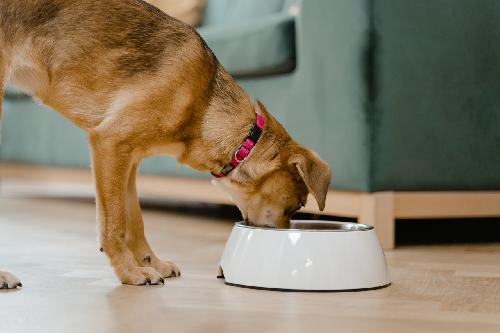
Back to all Blogs
Recent Blogs
- The Importance of Quality Dog Food For Dogs
- Why Omega-3 and Omega-6 Matters in Dog Food
- Tips For New Pet Owners To Buy Pet Food Online
- Reasons Why You Should Feed Your Dog All-Natural Treats
- Why You Should Make Sure Your Dog Gets Enough Omega-3
- How Frequently Should You Replace Pet's Food
- How Often Should you Feed Your Dog in a Day?
- Is it Safe For Dogs To Eat Porridge
- What to Know About the Dangers of Overfeeding Your Dog
- 7 Ingredients That You Should Never Pin In Your Dog's Food
- Benefits of Gluten-Free Dog Treats
- How To Effectively Transition Your Pet To A New Dog Food
- A Beginner
- Choosing the Best Dog Food for Your Dog’s Nutritional Needs
- Dry vs Wet Dog Food for Your Perfect Pups
- What To Consider When Selecting the Best Food for Your Dog
- How Vital Are Essential Fatty Acids to Your Dog’s Diet
- Omega-6 for Dogs - What Are the Benefits for Your Furbabies
- Health Tips to Promote Proper Nutrition to Rescue Dogs.docx
- Watch Out for These Dog Food Ingredients in Your Pet’s Food
- How to Prepare Food for Your Working Dog: A Brief Guide
- Are You Overfeeding or Underfeeding Your Dog: Find Out Here!
- The 5 Best Oils You Should Use on Your Cats and Dogs
Our Product Range:



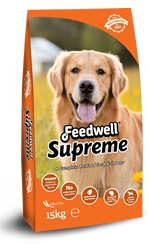 Active Family Dogs
Active Family Dogs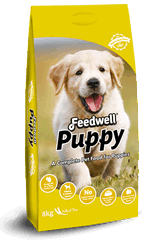 Puppy
Puppy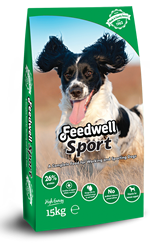 Working and Active Dogs
Working and Active Dogs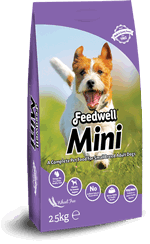 Smaller Dogs
Smaller Dogs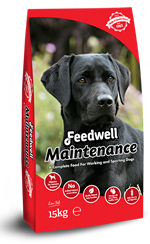 Maintenance
Maintenance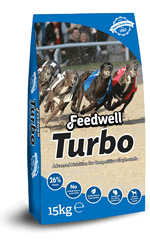 Turbo
Turbo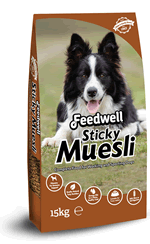 StickyMuesli
StickyMuesli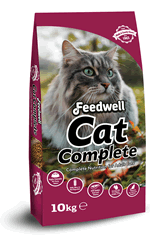 Complete Cat
Complete Cat



